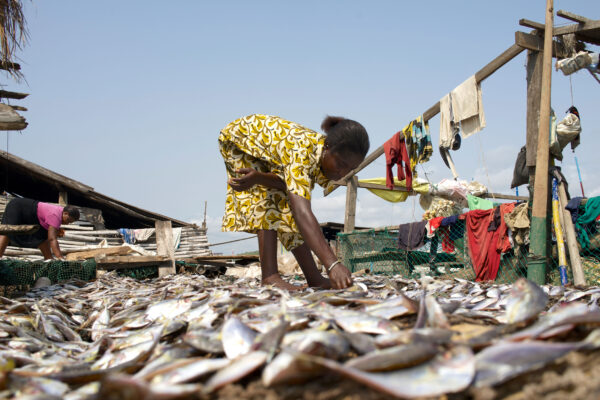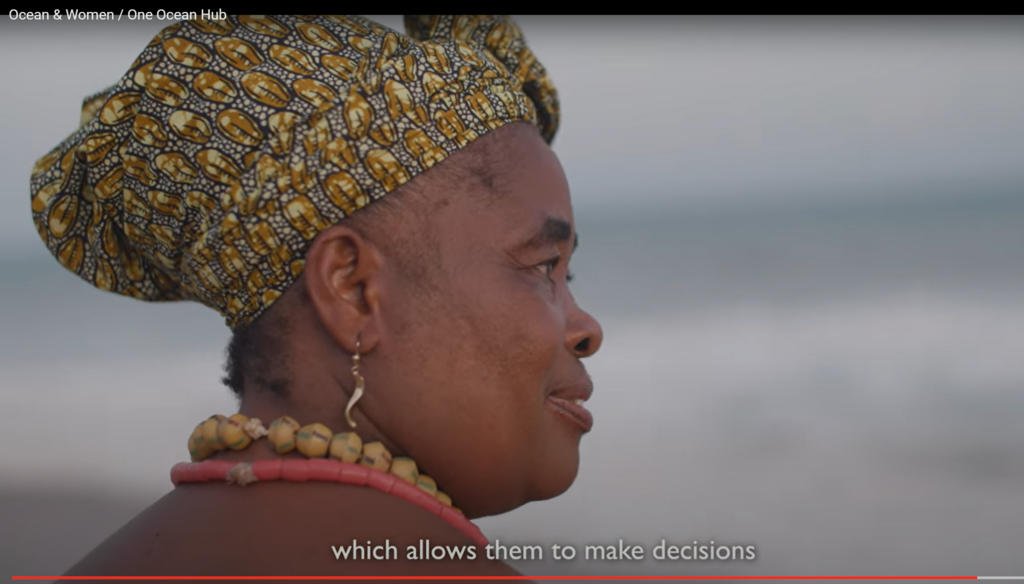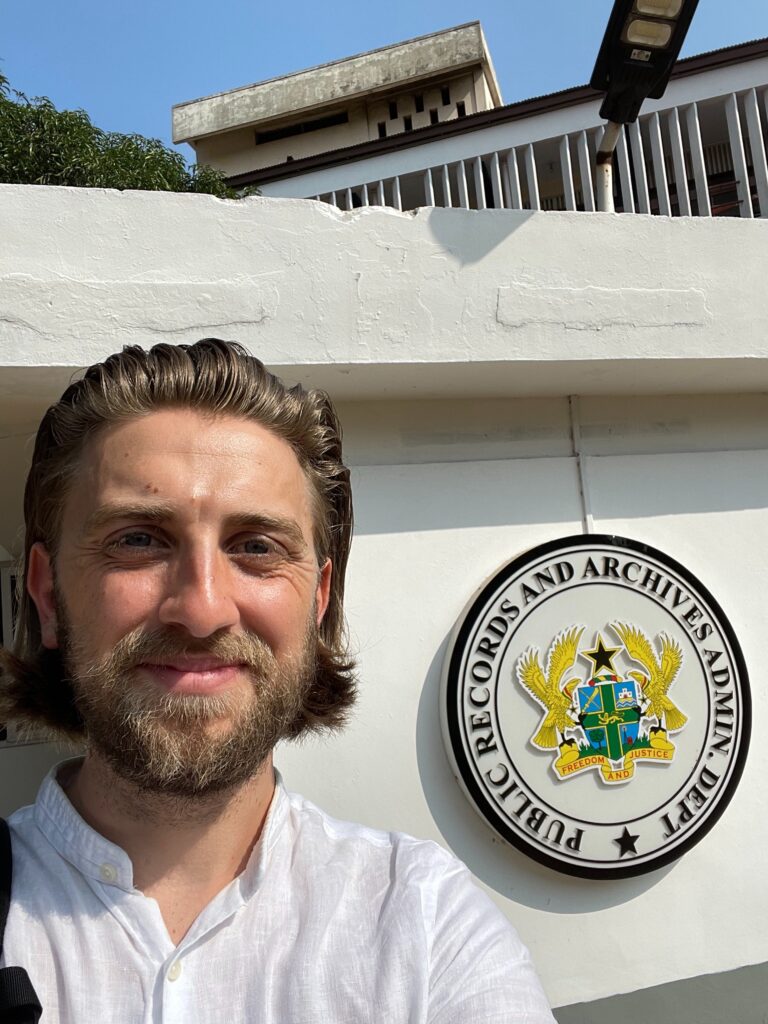Ghana

Fisherwoman sorting catch at a fish market in Elmina, Ghana. Photo: Shutterstock

In Ghana, fish products are a primary source of protein, and artisanal fishing is responsible for over 70% of fish landings. Defined as a fleet of low- or unpowered wooden canoes, this sector employs over 60% women and youth, and is essential to coastal communities.
The artisanal fishers target anchovies, mackerel and sardines. These fish stocks are facing particular pressures from pollution, overexploitation, use of destructive fishing methods, and competition from the industrial and semi-industrial sectors. Illegal fishing also poses a significant threat to coastal communities. It has been estimated that Ghana’s fish stocks could disappear within five years. This places already vulnerable fishing communities at greater risk of poverty and food insecurity.
To address these challenges, our research aims to co-develop ecosystem-based management tools, informed by artisanal fisher views, to support authorities and communities to sustainably manage marine resources while balancing multiple sectors of ocean use.
Inclusive implementation requires that the legal framework is pluralistic, accounting also for communities’ customary laws, their knowledge and rights. In addition, support is needed for communities in identifying supplementary livelihoods. Towards achieving this, we work directly with fisher communities, Government and other relevant authorities to co-develop solutions and enhance capacities to implement them.

The Hub has produced a short film, ‘Ocean & Women’ that presents the story of a Ghanaian fish worker, Peace Gavour Abla, and discusses the challenges faced by Ghanaian women living in coastal communities. The film celebrates women in small-scale fisheries who strive for genuine participation in ocean-related decision-making. The film premiered at the UN Ocean Conference in June 2022. Watch the film here.


